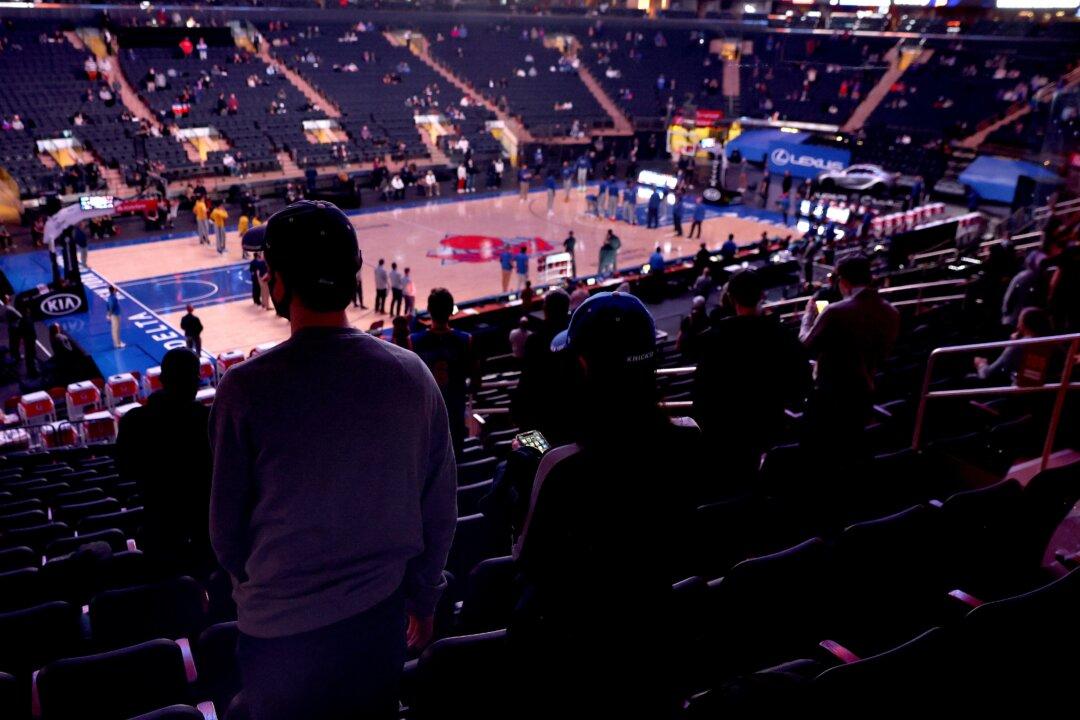Some fans attending two recent games in New York City helped test a new digital health pass that can show proof a person has recently tested negative for COVID-19 or been vaccinated against the virus that causes the disease.
Fans at a Feb. 27 Brooklyn Nets game at the Barclays Center and at a March 2 New York Rangers game at Madison Square Garden helped test the Excelsior Pass, which was developed by the state and IBM.





